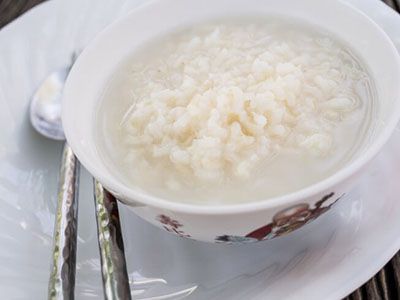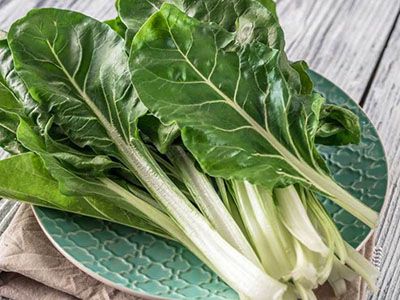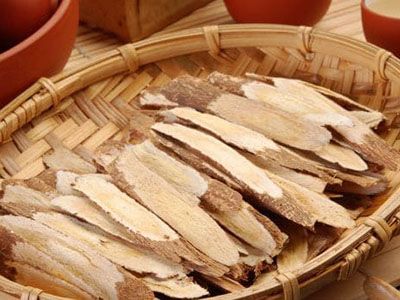Dr. Su's Blog
How to Prepare and Enjoy the Health Benefits of Congee (Chinese Rice Porridge)
In Chinese medicine there is a saying, “medicine and food have the same source. Therefore, medicinal foods can either be seen as healthy foods or medicinal prescriptions” (1).

Congee, also known as Jook, is a loose rice soup has been considered a medicinal food in China since the Han Dynasty in 206 BCE. It is basically rice cooked with extra water or stock for a long time. It particularly benefits the stomach and intestines and is most suitable for babies, people with gastro-intestinal complaints, and people with long-term illnesses. Gentle and digestible, an old Chinese text states, “when treating the depleted patient, use thick rice soup. This is as good as a decoction of ginseng.”(2)
This thinking can perhaps be best understood when we look at the Chinese concept of how digestion functions. What we consider our “stomach” is actually more akin to the Chinese idea of the Spleen (italicized here to denote the Chinese concept of the organ, not the physical organ in our bodies). There is also a Stomach but that merely receives the food we eat; the actual breaking down of food, unappetizingly called the “rotting and ripening” function, happens in the Spleen. Think of the Spleen like a cauldron: for food to break down appropriately, the cauldron has to be heated by a fire beneath it. In Chinese theory, the Kidney qi supplies the fire for warming the digestive fire to support digestion. Congee is a nourishing food because the warmth supports normal Spleen qi function even in times when the Kidney qi may be weakened.
The famous Chinese physician Sun Si-miao said that the superior doctor should first adjust the patient’s diet and lifestyle. Only if that did not eliminate the patient’s disease should the treatment progress to using acupuncture or herbs. Like the smoothie, a congee can be adapted to meet many varied medicinal needs. Along that line of thinking, herbs are frequently added to the porridge to enhance its medicinal effects.
With that in mind, consider medicinal congee as a lovely way to start the day!

General Directions:
Use 1 part rice to 4-6 parts water, stock, or bone broth.
Note that white rice is traditionally used. If digestion is very sensitive (ie, the few days after chemo), then the white rice option is soothing and easy to digest. For a healthier version, I frequently recommend using brown rice, or even barley or millet.
Simmer on very low heat for 1-2 hours or until rice is quite broken down. Or use a crock pot set on low overnight.
A nice general congee is 1 cup rice to 6 cups water/chicken stock.
To add more nourishment and protein, consider adding tofu, a soft-boiled egg, shrimp, fish, or a chicken leg.
Or for a sweeter version, add cinnamon, prunes, and ginger to the rice.
Of course, add greens! Spinach, nettles, and chard are gentle and mild, while mustard, watercress, or arugula would add a spicy kick.
For added immune support, include sautéed shitake mushrooms and miso.
For a cold or flu:
After congee is well-cooked, add chopped scallions and fresh grated ginger root and simmer for 15 minutes. If chilled and achy, add ground cinnamon. If sinuses are affected, add a small amount of wasabi.
After eating the congee bundle up and get under the covers to see if you can generate a light sweat.
For diarrhea that is due to weak, “cold” digestion:
People with a “cold” digestion (i.e., their cauldron is not able to heat up sufficiently to cook their food) frequently present with diarrhea, bloating/gas, a wet tongue or a large tongue that can have a thick white coat or teeth marks on the sides. These are signs of water not processing correctly. When this is the case it nice to use barley or Job’s Tears (a grain also known as Coix). These have enhanced ability to dry dampness and firm up loose bowels.
As congee is cooking add grated fresh ginger, a few cardamom pods, and a few sticks of Wild Yam (Dioscorrea, which we sell at the Mederi Center), a teaspoon of Poria powder or Atractylodes powder (also available at Mederi), and simmer 15-30 minutes.
For dry constipation:
I love how this one food can treat both constipation and diarrhea! Here it moistens the dry intestines. It is particularly beneficial if you add other moistening support: seaweeds such as kombu, hijiki, wakame, yams, black sesame seeds, flax seeds, and prunes.
For anemia:
We see a lot of anemia in our work at the Mederi Center. Most patients undergoing chemotherapy develop low blood counts. This anemia is different than an iron-deficiency anemia in that it is caused by the effects of the chemotherapy on the bone marrow, where blood cells are made. Donnie has formulated a beautiful herbal blend called “Bone Marrow Soup Mix” intended to be added to a bone broth as it is simmering. This broth can them be used as a base for soups and rice. I love this blend! It works beautifully to nourish the bone marrow and support healthy blood values. In the case of anemia, I recommend making the congee with the enriched bone broth as the base.

The mix highlights a few traditional herbs for building the blood:
Astragalus: Traditionally used as qi-enhancing herb with broadly tonifying effects, modern research shows it to enhance WBC depressed due to chemo, enhance quality of life in cancer patients, enhances the immune function particularly of the T-cells, and even enhanced the tumor-eliminating effect of the chemotherapy while minimizing side effects (3)
Processed Rehmannia: Known since ancient times for its ability to tonify the blood and moisten tissues, recent data shows that it also enhances immune cells during chemo as well as extends longevity. (4)
If someone is particularly cold and having trouble building energy and muscle mass (and they are a meat-eater), I have them add 1-2 free-range, organic lamb shanks, and simmer for an additional 2 hours or until lamb is falling off the bone.
I hope this has piqued your interest in the customization of congees and you can see how they would be a benefit for you. Particularly in cold climates during the winter, congees make a lovely medicinal addition to your diet. ENJOY!
1. Flaws, Bob, The Book of Jook, Blue Poppy Press, 1995.
2. Wang Lu-chu, “Medicinal Porridge”, Journal of the American College of TCM, 1985, #4, p.51
3. Duan P, Wang ZM. Clinical study on effect of Astragalus in efficacy enhancing and toxicity reducing of chemotherapy in patients of malignant tumor. Zhongguo Zhong Xi Yi Jie He Za Zhi 2002; 22(7): 515-517.
4. Xu JP. [Research on liu wei Rehmannia oral liquid against side-effect of drugs of anti-tumor chemotherapy] Zhongguo Zhong Xi Yi Jie He Za Zhi. 1992 Dec;12(12):734-7, 709-10.
Join the Mederi Center community by signing up for our email list! We send several emails a month with product promotions for patients, practical tips for healthy living, blogs written by our practitioners, information about events, and other news. You can unsubscribe at any time.

Meet Dr. Su!
Dr. Susan Saccomanno, ND, LAc is a contributing writer to the Mederi Blog and a practitioner at the Mederi Center Clinic in Ashland, Oregon. She has over a decade of experience as a family physician with a specialty in holistic cancer care and chronic illness. Dr. Su has been practicing at the Mederi Center since 2014, where she blends the best of naturopathic and Chinese traditions.
Dr. Su became a doctor out of her passion for helping people achieve vibrant health. She received her Naturopathic Doctorate and Master of Oriental Medicine degrees from National College of Natural Medicine, and extended her studies in integrative cancer care in the Eclectic Triphasic Medical System (ETMS), founded and taught by Donnie Yance.


